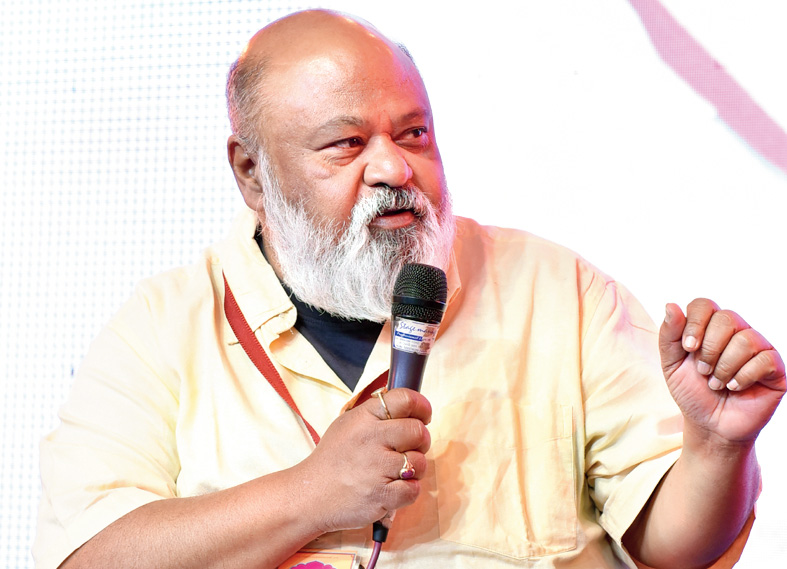Introducing Saurabh Shukla to the audience at the Kolkata Literature Festival, held at the recently concluded International Kolkata Book Fair in association with The Telegraph, session moderator Samarjit Guha started talking about Kallu mama, the gangster (Satya), and Pandurang, the minister’s henchman (Nayak). “I am worried that he might punch me if he does not like my questions,” he grimaced. Shukla quickly cut in: “Don’t worry about the punches. I don’t punch unless I am paid to.”
On that witty note, the National Award-winning actor started off on why he was doing theatre though, as he conceded, “it cannot run your kitchen”. “You do it because you passionately feel about it or you want to say something that cinema is not letting you say.”
Shukla returned to theatre after a long gap in 2011. “For 18 years, I did not do theatre as I did not have the patience to stick it out with a play for three months. But I was missing the experience of a live audience. And there are a lot of stories that cannot be told by cinema. Now I have patience. I wanted to tell those stories. I don’t want to settle down to one medium.”
Shukla believes that to learn acting one should practise writing. “Acting is a combined art. One has to have a sense of everything. There is a particular exercise for actors called imagination exercise. In writing, imagination is the first step.”
He admitted that his identity as a film actor helped to draw the audience to the theatre. “A good play by unknown actors will take time to pull the audience. So the name works. But if you bring a bad play it won’t save you.”
It was a midlife crisis that brought Shukla back to theatre. “I was going through a rough patch professionally. People were calling me a good actor but not coming with good roles. I was getting offered cameos that gave neither satisfaction nor money. I got bored. I started telling people I was not acting any more.”
He tried to start writing again. “But no line came to me. It was a scary feeling. I started questioning everything in life.”
At such junctures, he said, people do radical things like start drinking, smoking or having one-night stands. “The last option is the most exciting but I had a happy family which I did not want to trade. So I went back to smoking.” And to theatre.
Shukla was at the Book Fair with a new book called Barff. “I did not write the book,” he clarified. “I had written a film and then converted it into a play. The play got published as a book.”
The audience was treated to a dramatised reading of an excerpt from the play by Shukla. Barff is about a doctor who has gone to attend a medical meet in Srinagar. There is a blast and the meet gets cancelled. A taxi driver offers to show him around. In course of the conversation, he finds out that the driver’s son is ill and insists on accompanying him back to the far-off village. “He picks up the baby and realises it’s a doll. That is how the play starts,” he said, setting the context for the performance.
Postscript: The riveting turn the plot takes makes us feel that Barff needs to reach a stage near us soon.










